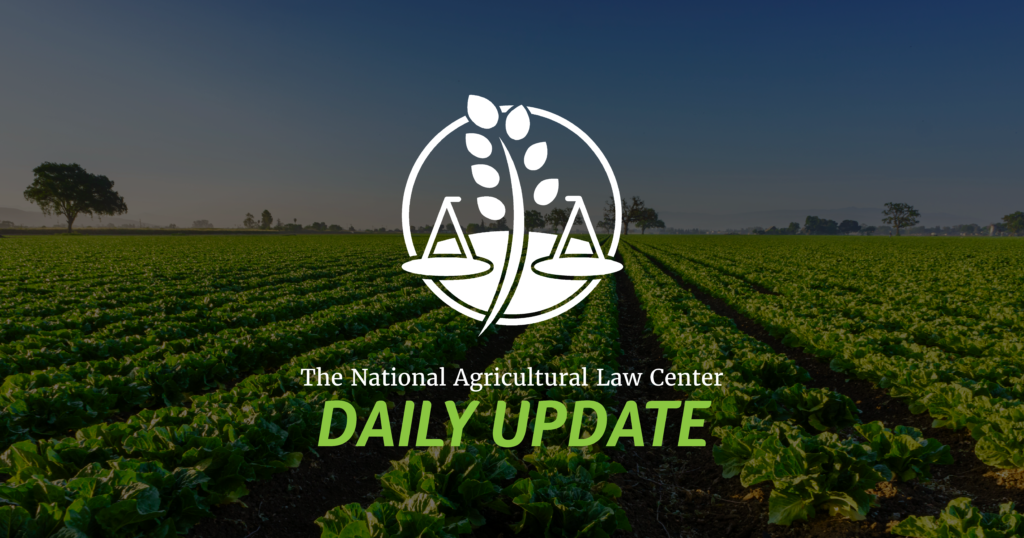A comprehensive summary of today’s judicial, legislative, and regulatory developments in agriculture and food. Email important additions HERE.
JUDICIAL: Conservation, EPA
In Foster v. United States Dep’t of Agric., No. 4:21-CV-04081-RAL, 2022 WL 2390814 (D.S.D. July 1, 2022), the plaintiff owned a piece of farmland that was certified as a wetland in 2011 pursuant to the Swampbuster Act. Plaintiff brought the complaint against the United States Department of Agriculture (“USDA”), the Natural Resources Conservation Service (“NRCS”), and their named representatives (collectively “Defendants”) seeking to set aside the 2011 wetland certification based on various legal theories including an Administrative Procedure Act (“APA”) claim that Defendants’ refusal to review the 2011 wetland certification was arbitrary and capricious. The parties filed cross-motions for summary judgment. The court found that the Swampbuster Act was within Congress’s Article I § 8 spending power and does not infringe upon state sovereignty by requiring states to implement a federal program, statute, or regulation. Defendants’ denial of Foster’s 2020 request for review complied with 7 C.F.R. § 12.30(c)(6) and was not arbitrary and capricious. The court granted the defendant’s motion for summary judgment.
In W. Virginia v. Env’t Prot. Agency, No. 20-1530, 2022 WL 2347278 (U.S. June 30, 2022), state and municipal governments, power utilities, renewable energy trade associations, public health and environmental advocacy groups, and coal mine operators petitioned for review of Environmental Protection Agency’s (EPA) new Affordable Clean Energy (ACE) Rule. The ACE Rule was promulgated under the Clean Air Act (CAA) and used only physical improvements at and to existing coal-fired power plants in its “best system of emission reduction” (BSER) by repealing and replacing Clean Power Plan promulgated by EPA under prior Presidential administration. The Supreme Court held that the state petitioners had standing to seek the Court’s review; the government failed to demonstrate that the case was moot; pursuant to the “major questions doctrine,” in certain extraordinary cases involving statutes that confer authority upon an administrative agency, the agency must point to clear congressional authorization for the authority it claims; and in the section of the CAA establishing the New Source Performance Standards program, Congress did not grant EPA the authority to devise emissions caps based on the generation-shifting approach the agency took in the Clean Power Plan.
REGULATORY: FWS
FISH AND WILDLIFE SERVICE
Proposed rule announcing a 6-month extension of the final determination on whether to remove the ivory-billed woodpecker (Campephilus principalis), a bird species historically found in the American southeast, from the List of Endangered and Threatened Wildlife. Info here.
